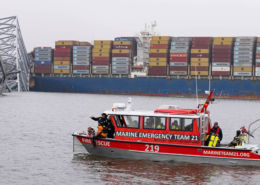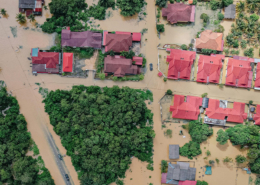7 ERDI Protocols for Keeping on Track and on Target
The responsibilities of a Public Safety Dive (PSD) team supervisor will depend a great deal on the size and the history of the team. In some operations, the typical job description might run several pages, but the focus must remain on core items that relate to, and directly influence, team safety and effectiveness, while balancing operational compliance with budgets and efficiencies.
For the record, here is a list of items recently submitted by ERDI members when asked what’s important to YOUR PSD team.
1. Training
Training should be open to all team members – support staff as well as dive staff. It should be ongoing and structured to cover all levels of operations. A training calendar should be posted both online and on your bulletin board and updated regularly. Create and implement a professional development/training schedule that all team members can refer to and follow. Give your team personal goals.
2. Make training appropriate
Train for the conditions that you will encounter in your jurisdiction. This includes Ops level training in rapid water, ice, contaminated water and so on. Include training in the use and deployment of the appropriate gear for the tasks your team may be called on to complete. For example, diving in HAZMAT conditions cannot be safely conducted in anything BUT the correct gear, which includes special drysuits and full-face masks… not wetsuits and recreational scuba gear.
3. Prepare for the unexpected
Train and equip your team for conditions that are out of the ordinary. For instance, flooding and other natural disasters. Draw up protocols for these kinds of events and review response procedures on a regular basis.
4. Will you say NO?
As a PSD team supervisor, are you prepared to say no to a request for a dive operation? In other words, when the risk/benefit analysis indicates that your team is not trained or not equipped to safely conduct an operation, are you able to explain why they cannot dive?
5. Drill the basics
Run regular clinics and refreshers to maintain basic skills and working knowledge among ALL PSD team members. Fundamental skills quickly decay when not used. Put all PSD team members on a regular schedule that will ensure they maintain a readiness to perform.
6. Maintain team dynamics
Build team spirit and work on maintaining it. As well as regular team briefings, debriefings, and feedback sessions, plan social “out of uniform” events as a morale and team building strategy.
7. Cross-training may help efficiencies
Encourage team members to cross-train for “other” responsibilities. For example, have public safety divers perform public safety information duties. This may be a benefit for them, but certainly has the potential to bring first-hand, front-line experiences to the general public. A supervisor’s role should also include drawing up a plan for succession. Encourage mentorship of junior team members by more experienced peers.
As a team super, you may be called on to do much more than those jobs that relate directly to the work of serving our community – fund-raising, speaking at local service clubs and schools, attending tradeshows – but never lose sight of the core function of keeping your team ready to perform difficult, and sometimes thankless, tasks.








 Photo By: Defense Visual Information Distribution Service
Photo By: Defense Visual Information Distribution Service
留下回覆
想加入討論?隨時歡迎參與討論!